Cell Reproduction -> hypothalamus
Hypothalamus
The hypothalamus is a small region of the brain located just below the thalamus and above the pituitary gland. It plays a crucial role in maintaining homeostasis, which is the body's ability to maintain internal balance and stability.
Functions of the Hypothalamus
The hypothalamus is responsible for regulating various vital processes in the body, including:
- Temperature Regulation: The hypothalamus helps regulate body temperature by initiating sweating or shivering in response to changes in the external environment.
- Thirst and Hunger: It controls feelings of thirst and hunger, prompting the body to seek food and water when needed.
- Sleep and Circadian Rhythms: The hypothalamus helps regulate the sleep-wake cycle and other circadian rhythms.
- Hormone Production: It controls the release of hormones from the pituitary gland, which in turn regulate various physiological processes in the body.
- Emotional Responses: The hypothalamus is involved in the expression of emotions and the physiological responses associated with them.
Study Guide
When studying the hypothalamus, it is important to focus on the following key points:
- Location and Anatomy: Understand the position of the hypothalamus in the brain and its anatomical features.
- Homeostasis: Explore the role of the hypothalamus in maintaining internal balance, including temperature regulation, thirst and hunger, and sleep-wake cycles.
- Hormonal Regulation: Learn about the hypothalamic control of hormone production and its interaction with the pituitary gland.
- Emotional and Behavioral Functions: Investigate the involvement of the hypothalamus in emotional responses and behavioral regulation.
- Clinical Relevance: Explore the impact of hypothalamic dysfunction on health and well-being, including conditions such as obesity, sleep disorders, and hormonal imbalances.
Understanding the functions and significance of the hypothalamus is essential for comprehending the complex regulatory mechanisms that govern the body's physiological processes.
.◂Science Worksheets and Study Guides Seventh Grade. Cell Reproduction
Study Guide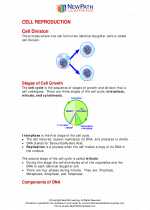 Cell Reproduction
Cell Reproduction  Activity Lesson
Activity Lesson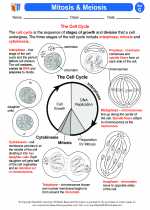 Mitosis & Meiosis
Mitosis & Meiosis  Worksheet/Answer key
Worksheet/Answer key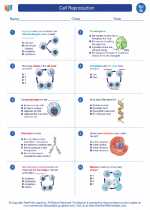 Cell Reproduction
Cell Reproduction  Worksheet/Answer key
Worksheet/Answer key Cell Reproduction
Cell Reproduction  Worksheet/Answer key
Worksheet/Answer key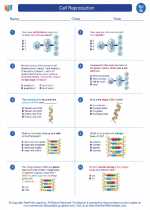 Cell Reproduction
Cell Reproduction  Vocabulary/Answer key
Vocabulary/Answer key Cell Reproduction
Cell Reproduction  Vocabulary/Answer key
Vocabulary/Answer key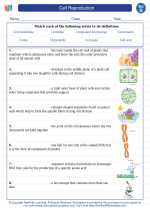 Cell Reproduction
Cell Reproduction  Vocabulary/Answer key
Vocabulary/Answer key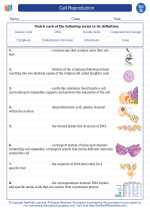 Cell Reproduction
Cell Reproduction  Vocabulary/Answer key
Vocabulary/Answer key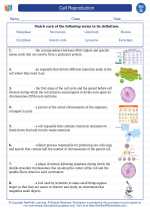 Cell Reproduction
Cell Reproduction  Vocabulary/Answer key
Vocabulary/Answer key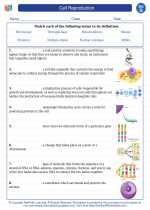 Cell Reproduction
Cell Reproduction  Vocabulary/Answer key
Vocabulary/Answer key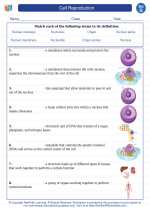 Cell Reproduction
Cell Reproduction  Vocabulary/Answer key
Vocabulary/Answer key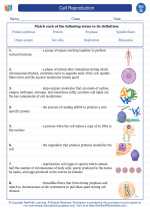 Cell Reproduction
Cell Reproduction  Vocabulary/Answer key
Vocabulary/Answer key Cell Reproduction
Cell Reproduction 

 Activity Lesson
Activity Lesson
 Worksheet/Answer key
Worksheet/Answer key
 Worksheet/Answer key
Worksheet/Answer key
 Worksheet/Answer key
Worksheet/Answer key
 Vocabulary/Answer key
Vocabulary/Answer key
 Vocabulary/Answer key
Vocabulary/Answer key
 Vocabulary/Answer key
Vocabulary/Answer key
 Vocabulary/Answer key
Vocabulary/Answer key
 Vocabulary/Answer key
Vocabulary/Answer key
 Vocabulary/Answer key
Vocabulary/Answer key
 Vocabulary/Answer key
Vocabulary/Answer key
 Vocabulary/Answer key
Vocabulary/Answer key

The resources above cover the following skills:
LIFE SCIENCE
From Molecules to Organisms: Structures and Processes
Gather and synthesize information to explain how prokaryotic and eukaryotic cells differ in structure and function, including the methods of asexual and sexual reproduction.